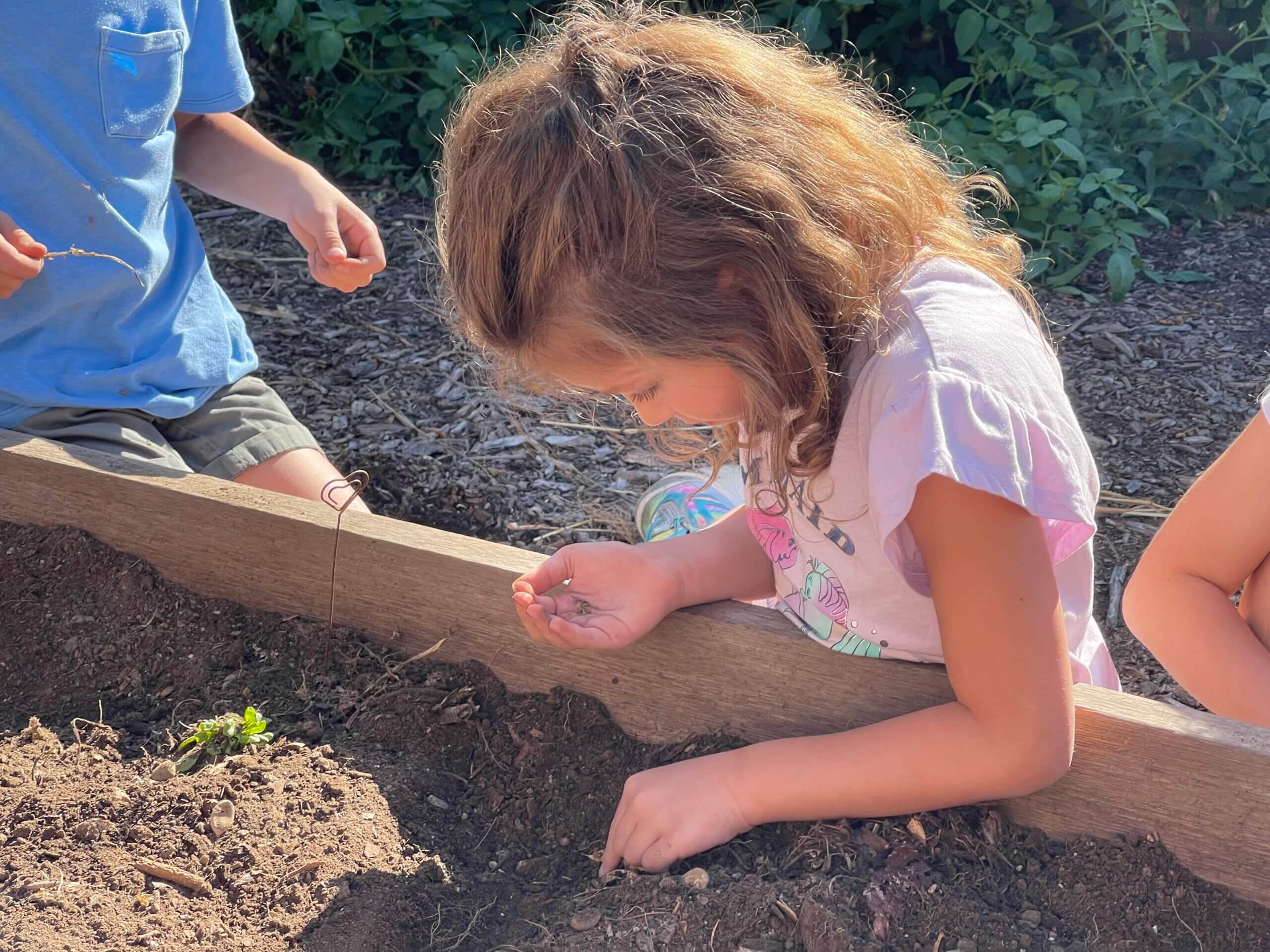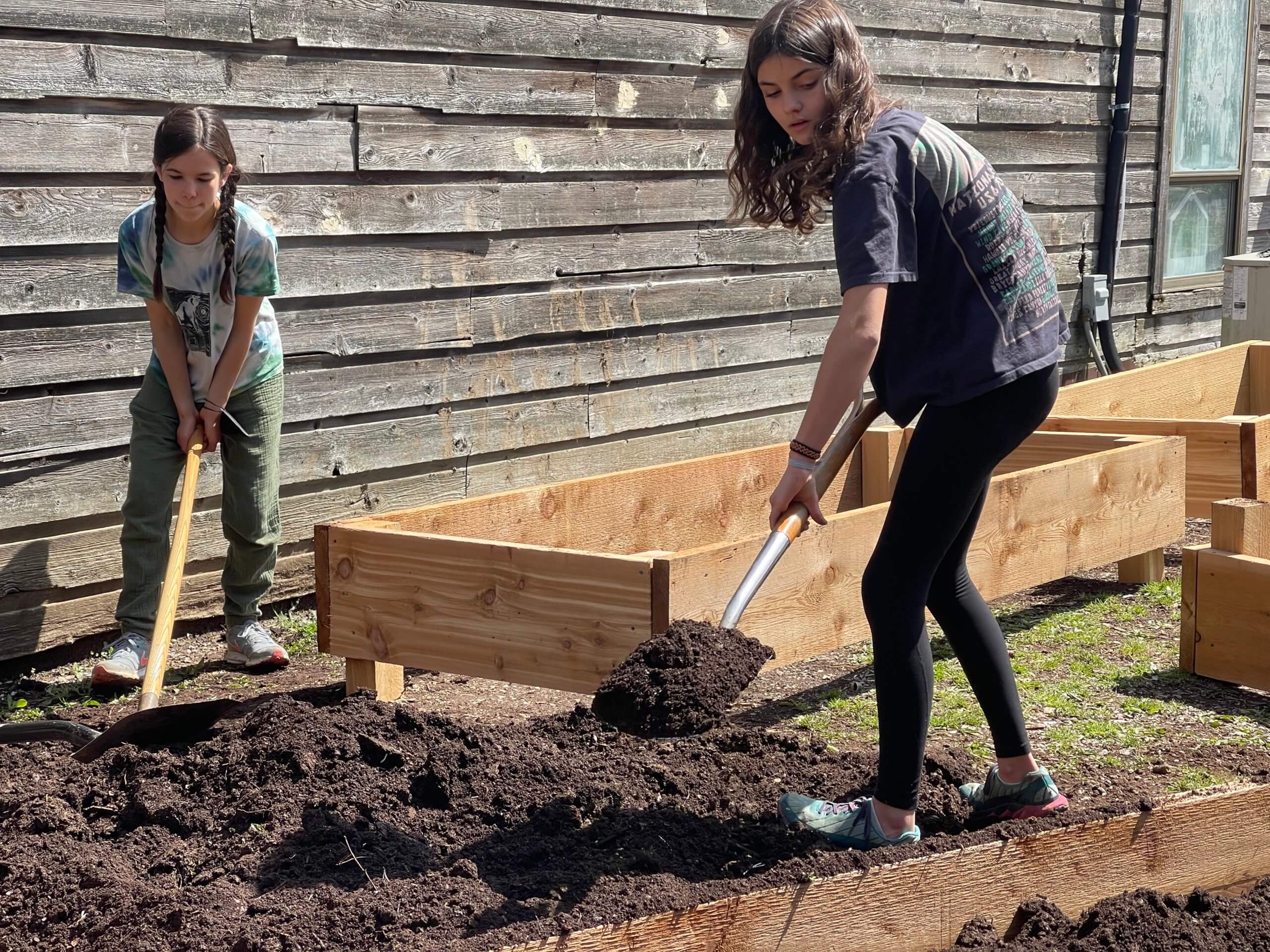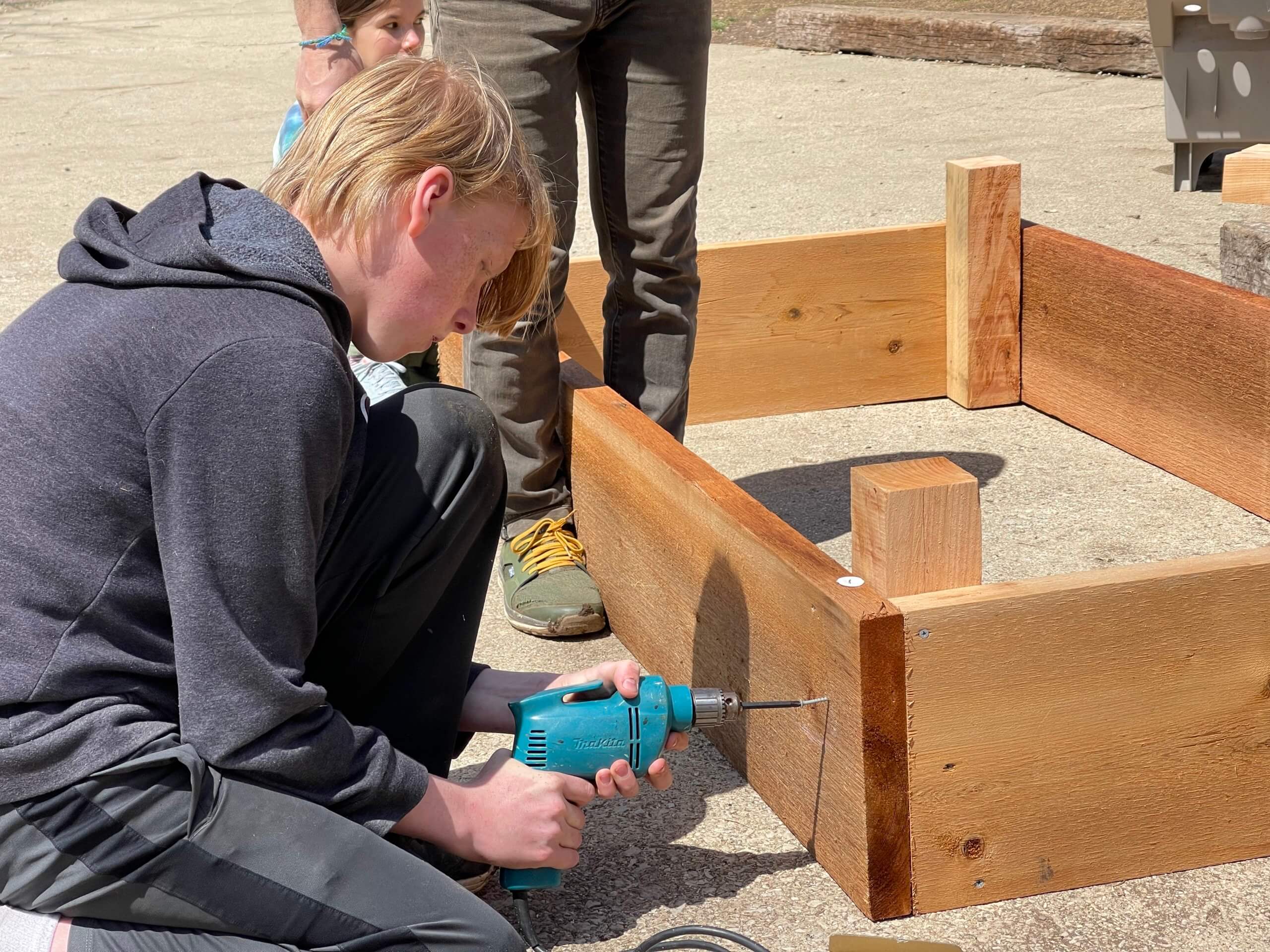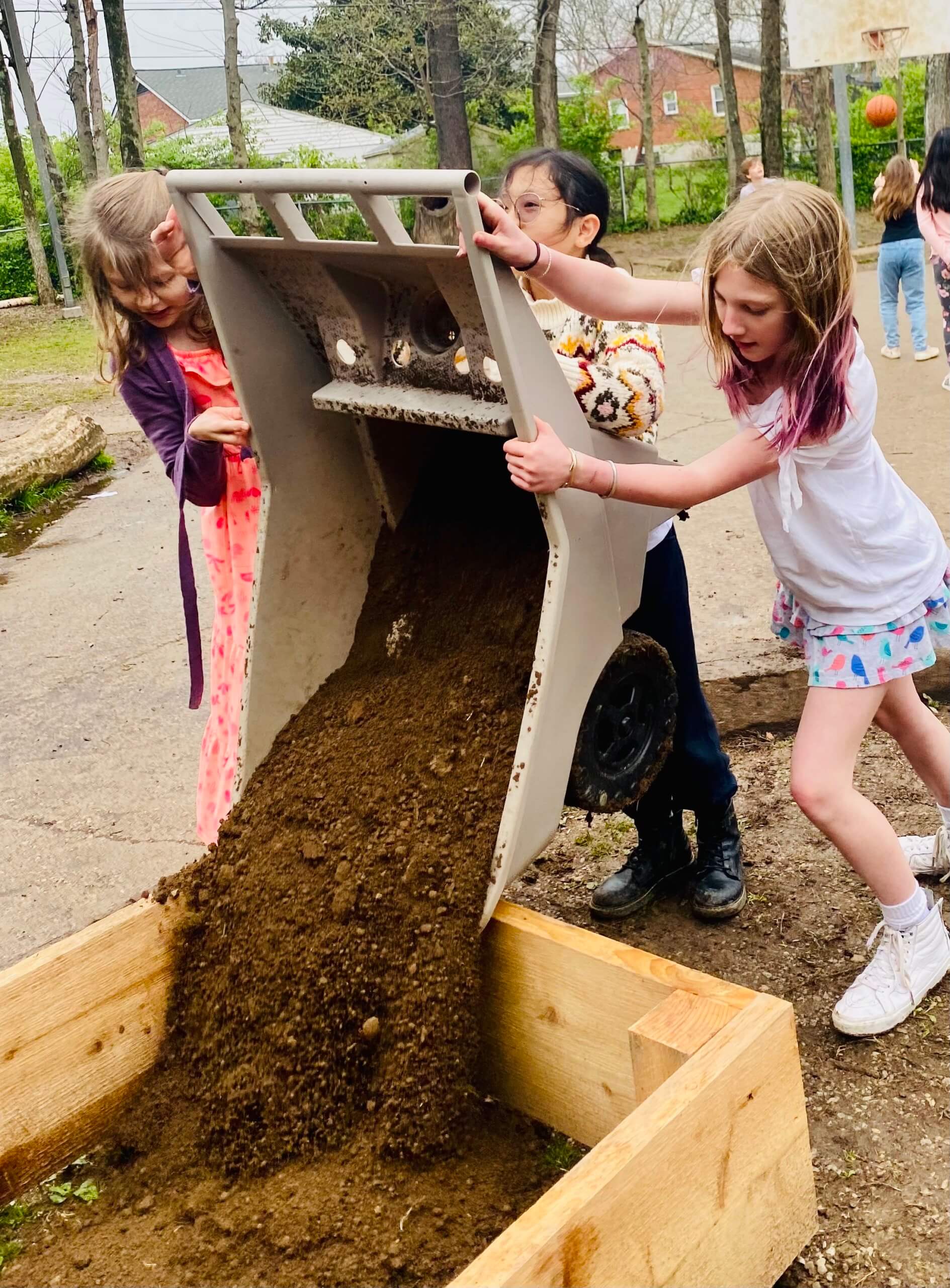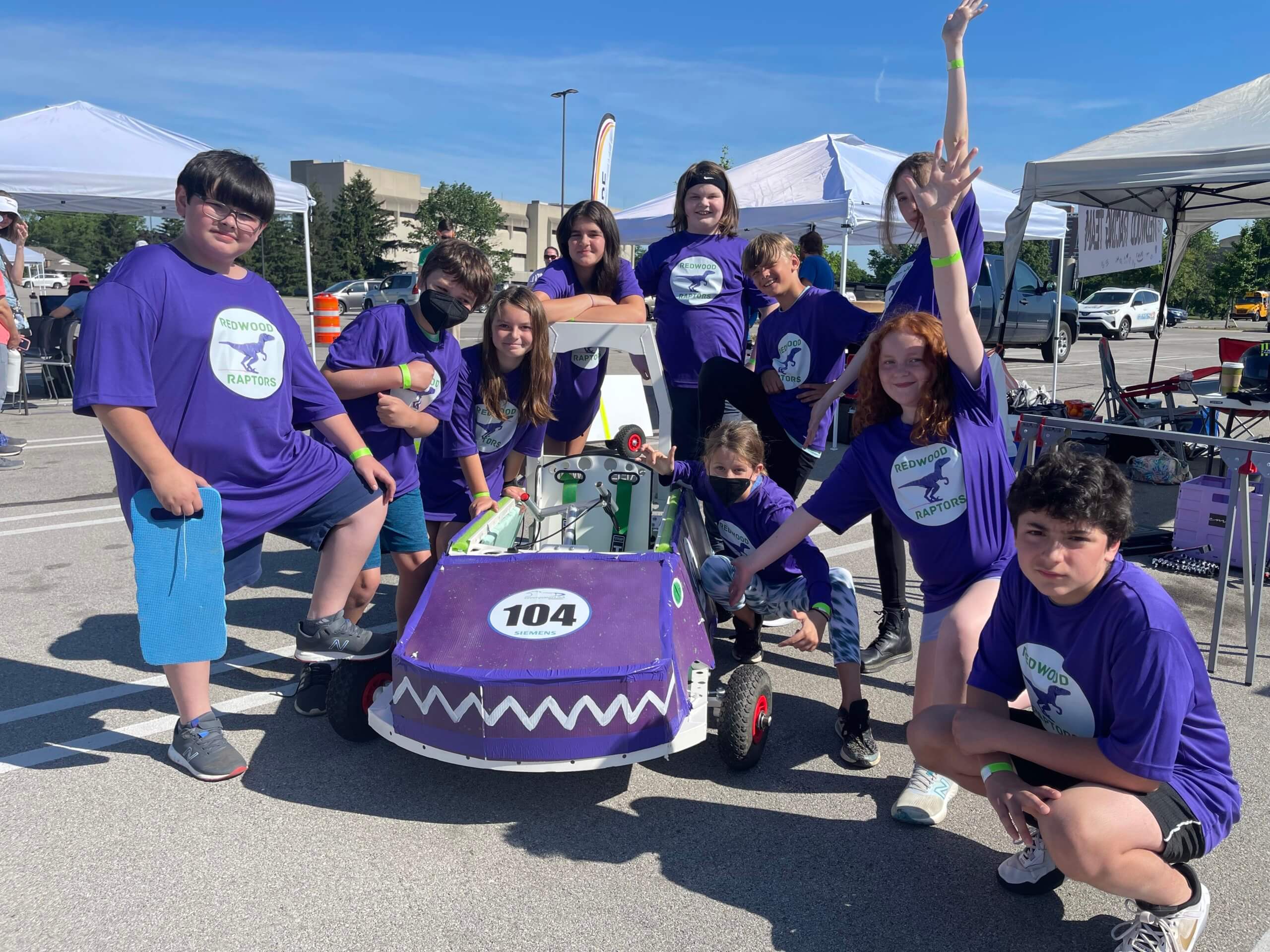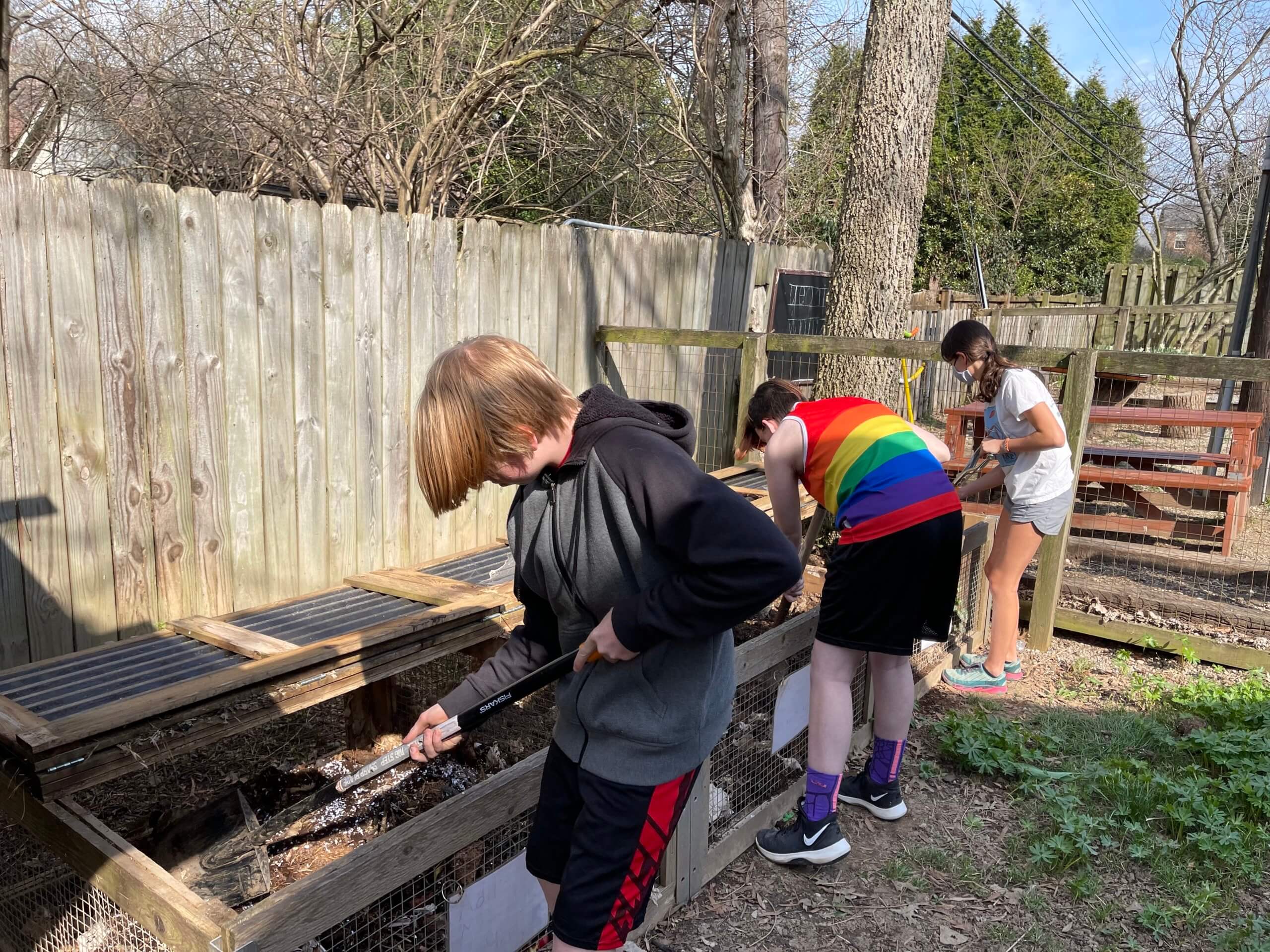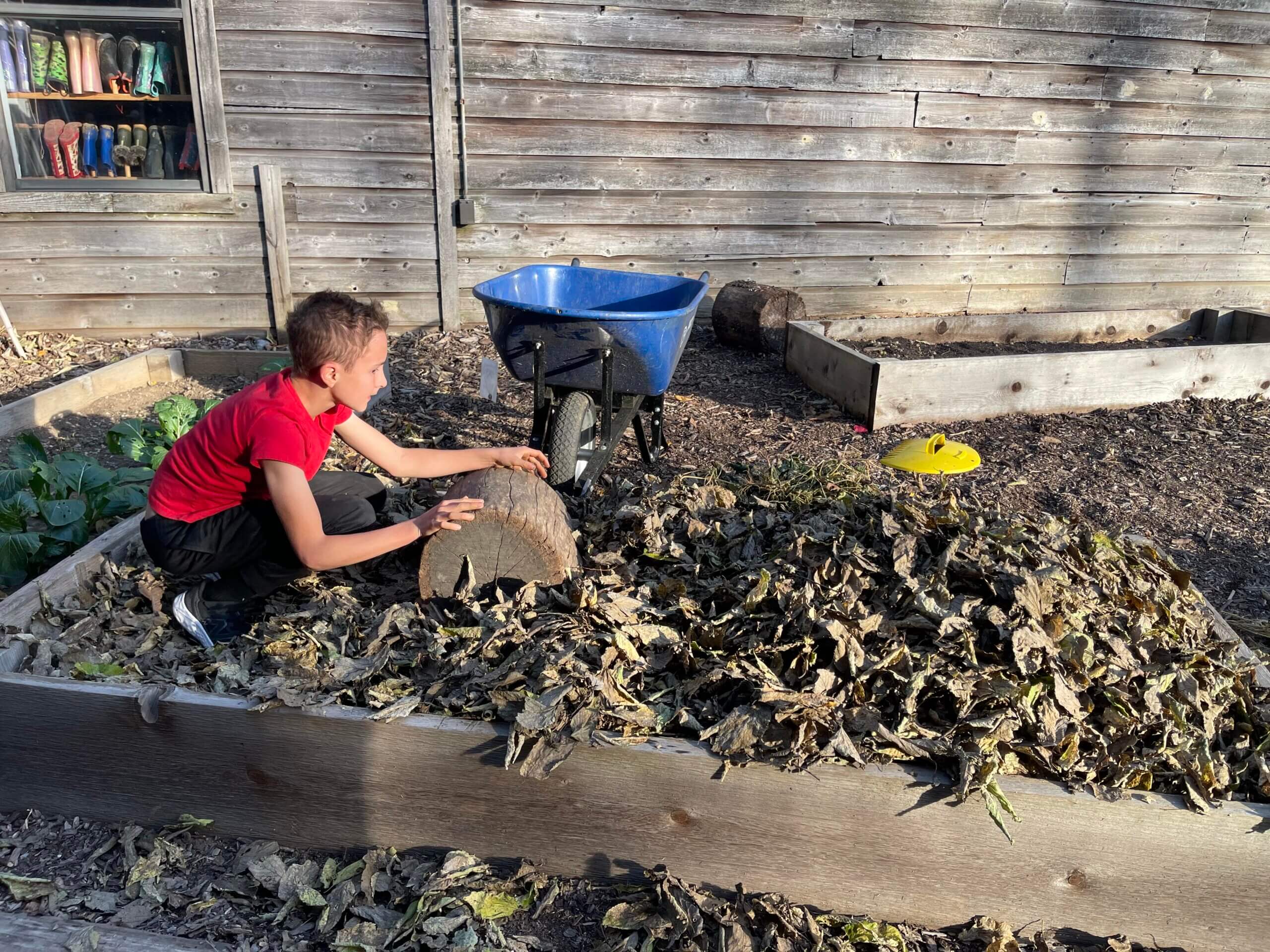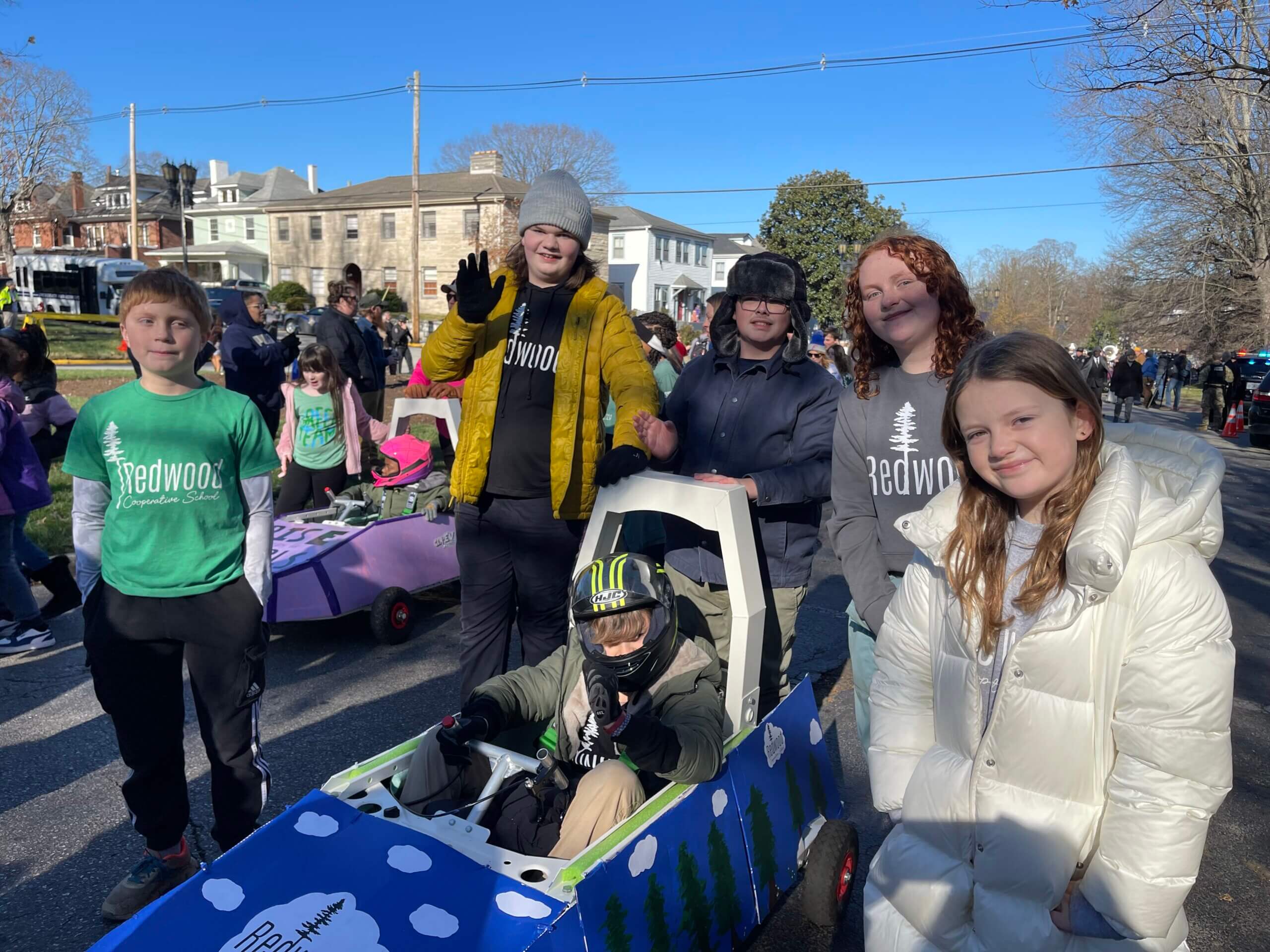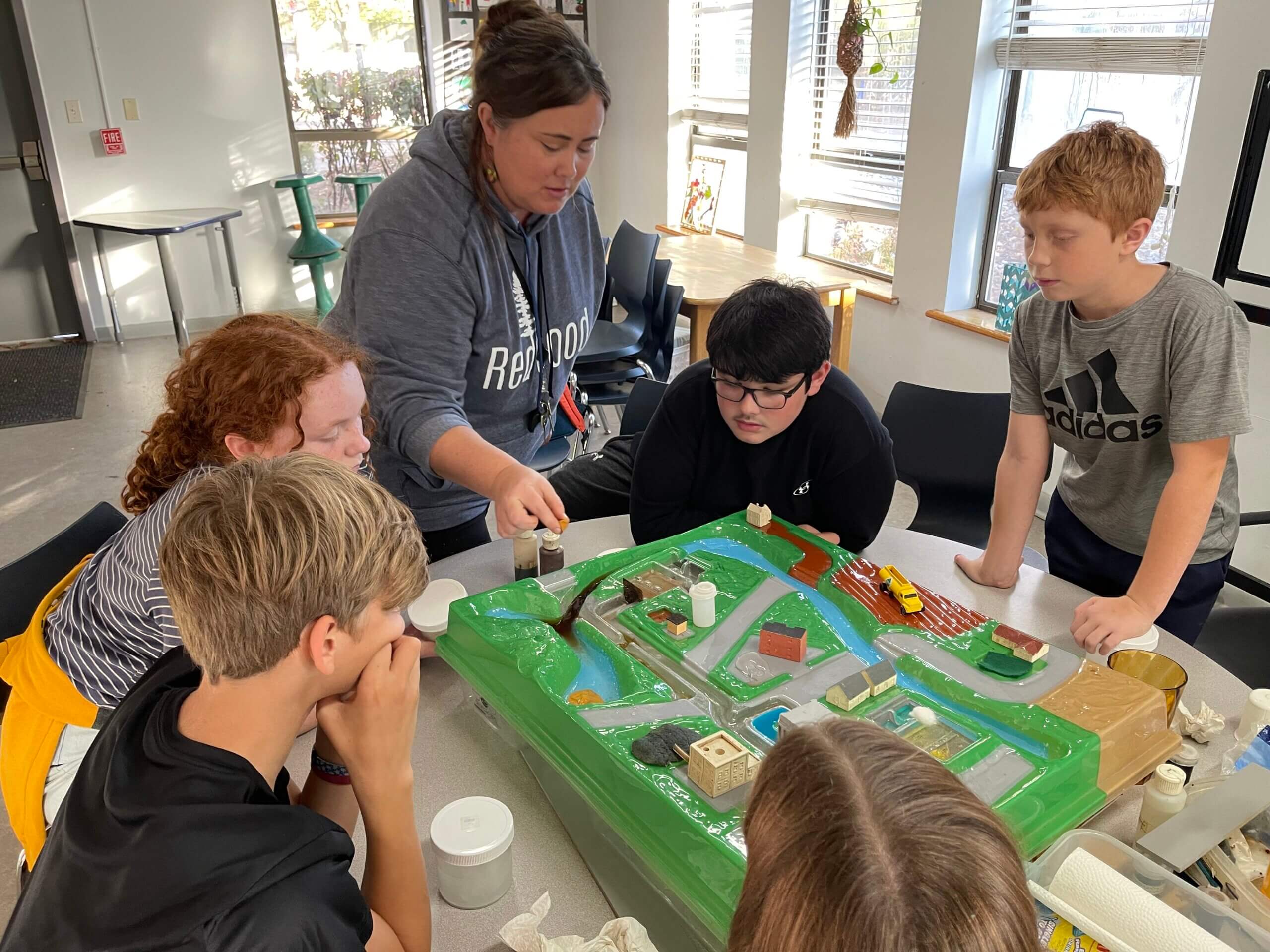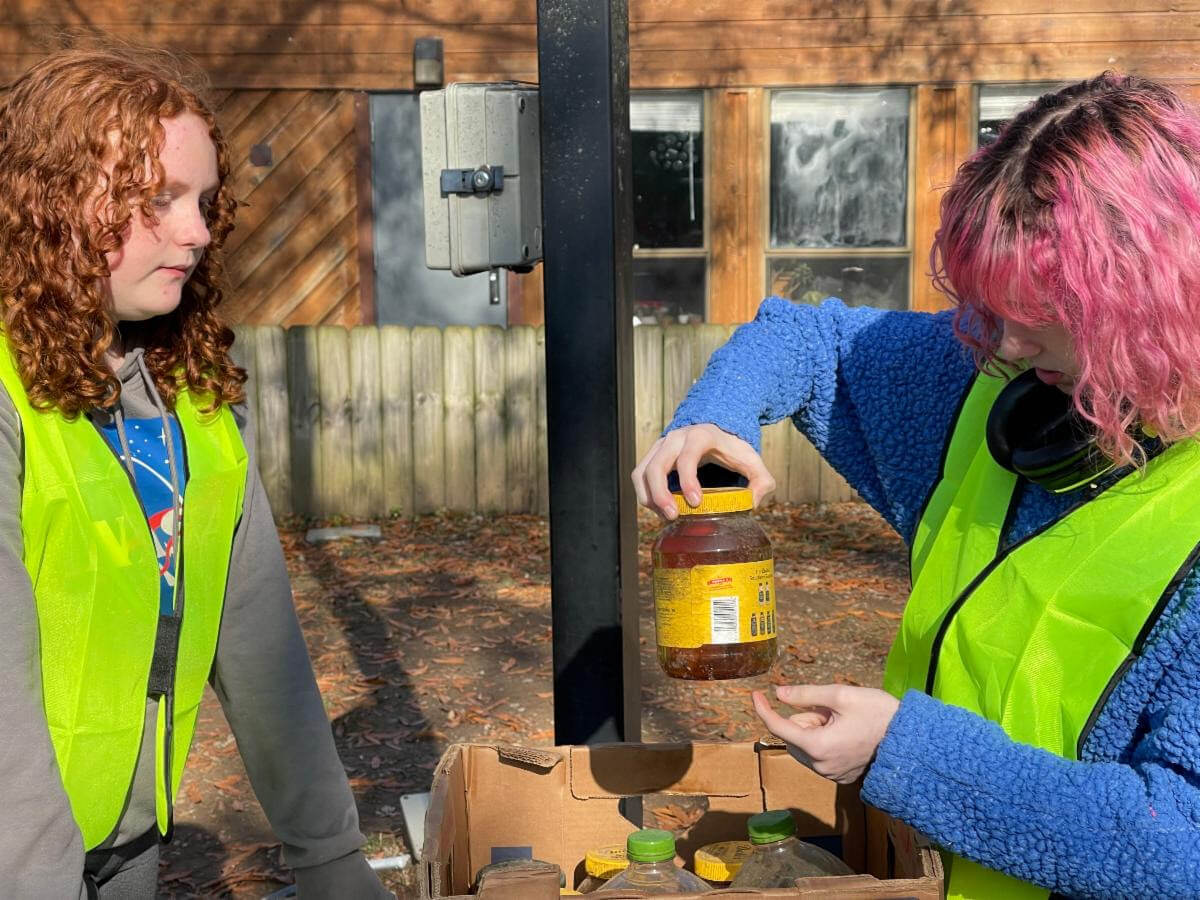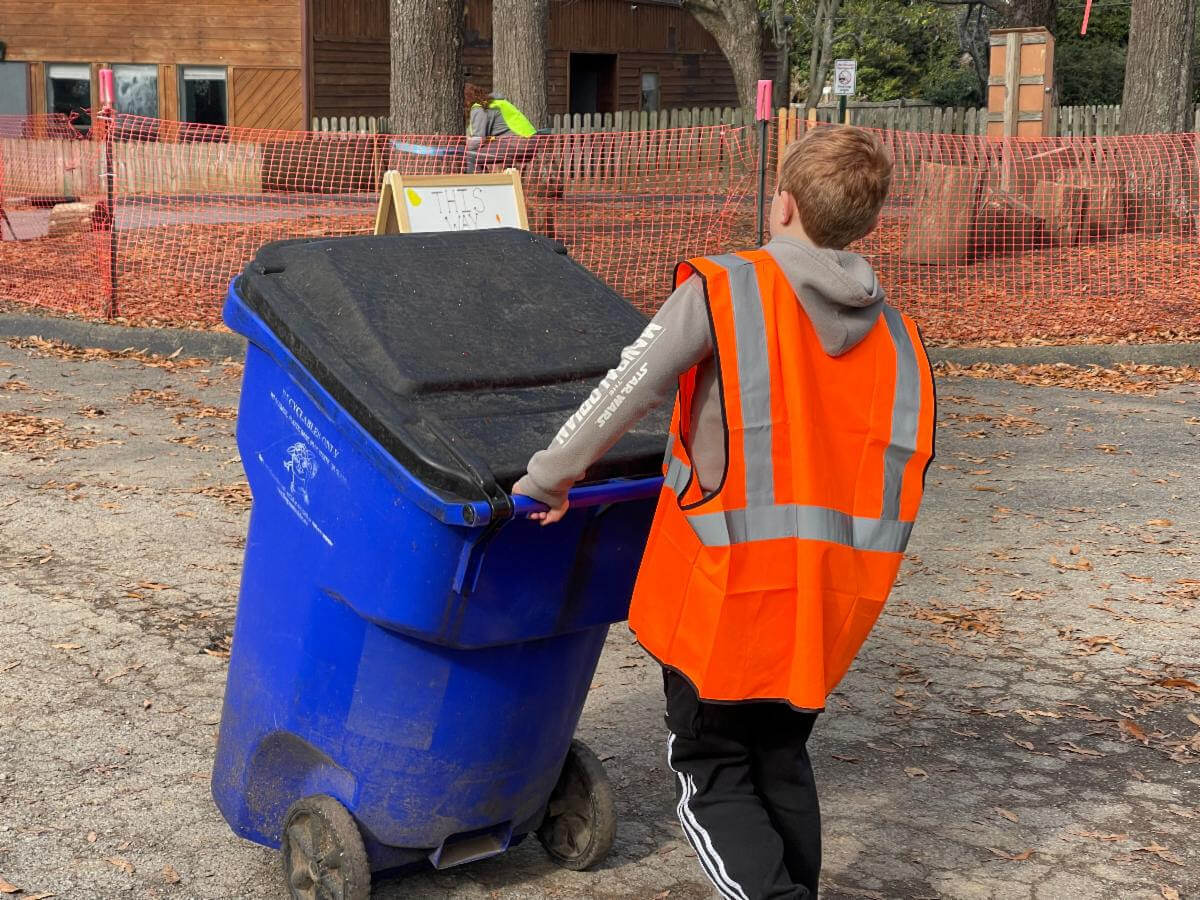Sustainability
Redwood Cooperative School is committed to environmental sustainability.
From its inception in 2014, Redwood Cooperative School has valued environmental sustainability as a key program tenet. From curriculum integrations to environmental project work to community partnerships with environmental agencies and organizations, Redwood students, faculty, staff and families have made numerous improvement efforts. Environmental education, literacy and service learning is so much a part of our school that it is embedded in our vision statement – “Redwood strives to be a regional leader in child-centric, progressive education that creates global citizens and empowered problem solvers with a commitment to community and environment.”
Environmental and wellness initiatives occur throughout the school, including school-wide efforts as well as individual class and group projects. Each year, the school’s Leadership Team surveys the school classrooms, buildings and grounds to find identifiable environmental needs. They then plan and implement improvement projects, involving each student in the school in the process.
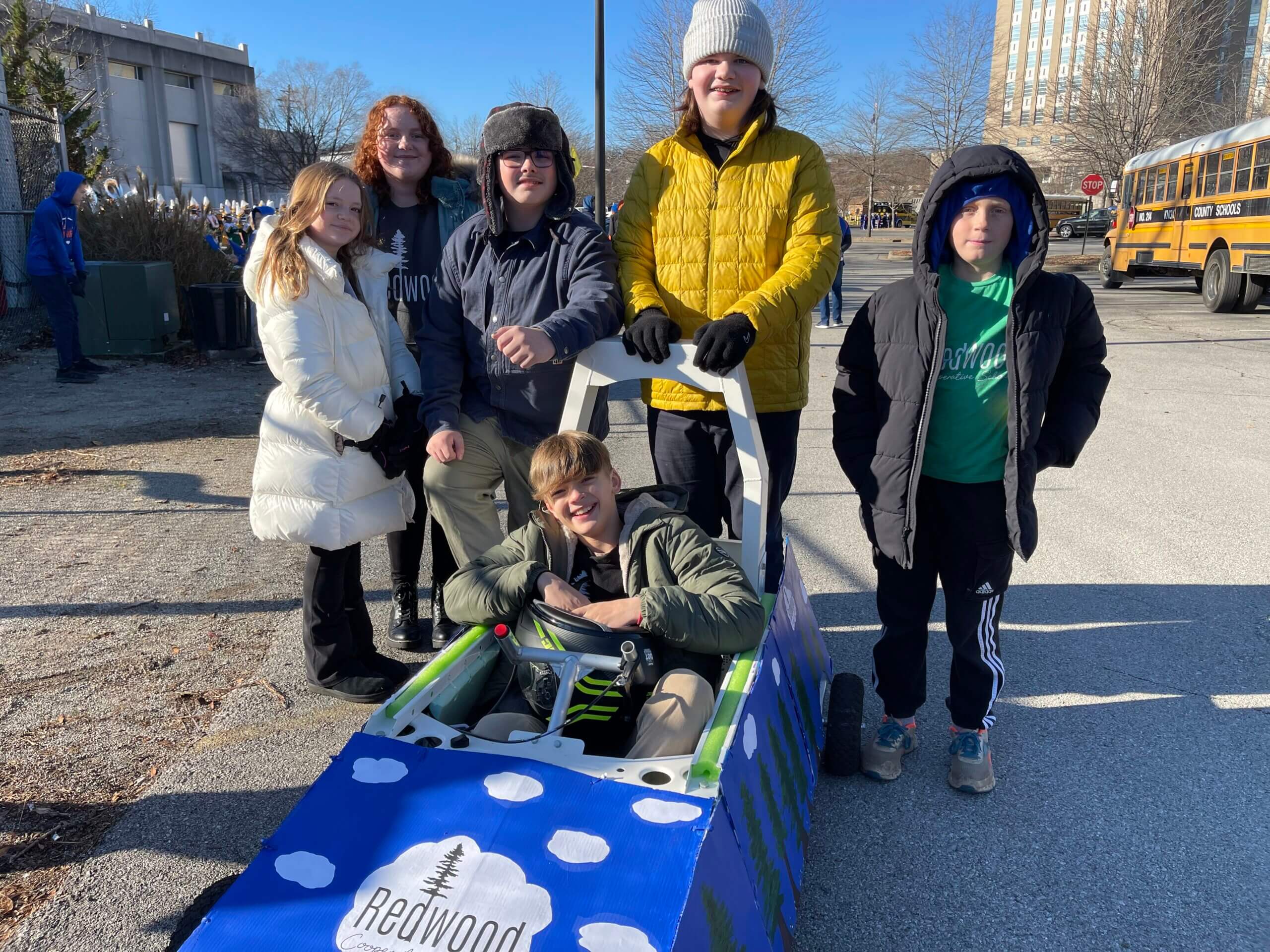
- At Redwood, reducing solid waste is an ongoing effort. We require each student to bring a water bottle to school and have raised funds to install three water bottle refill stations.
- We maintain a school recycling program where each student in the school is educated about proper recycling and then recycles all possible waste. In addition to city collection items, our leadership team has expanded this to include collecting and recycling unique items, such as markers, squeezable food containers and additional plastics that the city does not recycle.
- With the help of a climate literacy grant, awarded by the Kentucky Association for Environmental Education and the Kentucky University Partnership for Environmental Education, the Leadership Team was able to build a compost bin for the school. After educating each class and faculty and staff, we are now composting all compostable food waste produced by the school.
- Redwood makes efforts to learn about and to conserve energy. For the last four years, Redwood has co-hosted the city wide used cooking oil recycling project, the Gobble Grease toss. We partner with Lexington Fayette Urban County Government (LFUCG), the University of Kentucky Center for Applied Energy Research (CAER) and Kelley Green Biofuel to collect and recycle used cooking oil the day after Thanksgiving each year.
- After collecting and analyzing data on idling habits in morning and afternoon carpool lines (finding that two thirds of cars were idling for 15 minutes or more, even on days with mild weather), students purchased a bike rack and “idle-free zone” signs with raised funds. Students are encouraged to ride their bikes to school and people in carpool line are encouraged to be “idle-free” while waiting for their children.
- Sustainable agriculture is another area of focus for our school. We have built a raised bed garden, using free end cuts from a local lumber yard to reduce waste. Each class starts seeds in the classroom and tend to the seedlings until they are ready to be transplanted in the outdoor garden, and all classes tend to the outdoor garden and harvest produce. Some of the produce is enjoyed by our students as nutritious supplements to their snacks and lunches and some produce will be donated to Glean Ky and local food pantries.
- Redwood participates in the University of Kentucky Extension egg incubation project. Our classrooms received incubators and eggs to care for and hatch. The hatched chickens have found a home at Redwood in two coops on campus, one close to the preschool playgrounds and one close to the elementary and middle school playgrounds, and laying eggs consistently. Each week, the classes take on the responsibility of chicken care, rotating through a schedule that includes preschool classes, elementary classes, middle school classes and our students who attend the after care program. Students provide food and water and collect eggs. Some classes have used their eggs to make baked goods, others have donated the eggs they collect. Keeping chickens at school allows all of our students and families to connect with farm animals, develop compassion, learn about locally produced foods, and reduce the carbon footprint of food transportation.
- Redwood students support pollinators through an effort to increase native plants on campus. After researching issues that pollinators currently face, our Leadership Team planned and planted a pollinator habitat. They determined the best combination of plants to use in their native garden, created the design and then enlisted the help of other students in planting the garden and painting stones to create a border. The garden is used to support pollinators and provide an observation area for students.
- The space directly outside of each classroom has been turned into outdoor classrooms, so each class has easy access to outdoor learning and can utilize this connected outdoor space as an extension of their classrooms. Teachers use this space to offer an outdoor component to regular lessons (literacy, engineering, math, etc), have a space for hands-on activities, and an outdoor space for enjoying snacks and lunches and generally connecting with nature.
- To date, our school has received over $31,000 in grant funding to do our environmental work.

